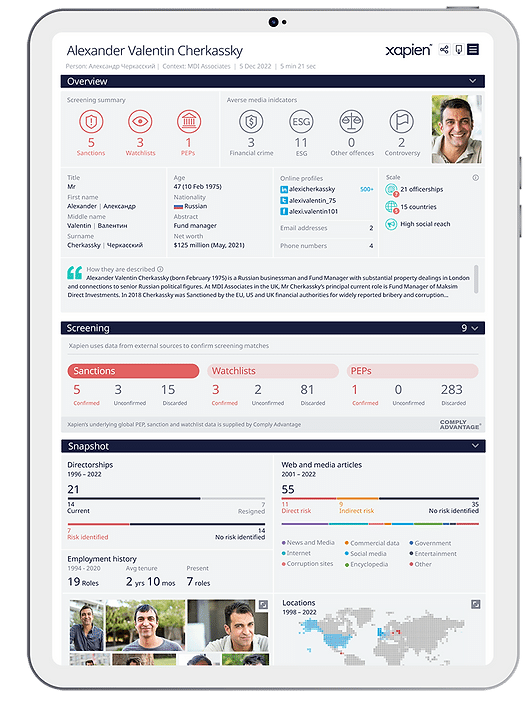“Xapien has become the first step in our profile writing process.”
Oliver Taylor, Development Research Manager at The University of Manchester
Background
The University of Manchester’s prospect research team is a part of the University’s development and alumni relations division. They maintain contact with an alumni network of 650,000 individuals—possibly the largest alumni database in the UK. The research team supports front-line fundraisers by conducting prospect research and due diligence. As a team of six, their focus includes ensuring a consistent stream of quality prospects, preparing fundraisers with insights, and helping to manage reputational risk.
The challenge
The research team endeavours to dedicate as much time to proactive research—finding new prospects and exploring emerging leads—as they do to reactive research, which involves investigating existing individuals in the pipeline. However, with over 20 fundraisers to support, achieving this balance is a challenge – more time is spent responding to reactive fundraiser requests than carrying out new-name identification, which limits the organisation’s ability to expand into new areas.
Where Xapien steps in
With Xapien, the information that would sometimes take the research team up to half a day to uncover through desk research can now be found in just 10 minutes. This timesaving enables research profiles to be written and delivered in half the time, freeing up researchers to engage in proactive research.
Research before Xapien
The University of Manchester’s research team is part of the larger development and alumni relations division, which functions as the fundraising arm of the university. The department’s responsibility involves maintaining contact with a huge alumni network of 650,000 individuals, with active communication established with at least half of them. This stands as one of the most substantial databases of stakeholders and supporters, not only within universities but at charitable organisations across the UK.
The research team helps fundraisers by conducting prospect research and due diligence. With six members now, they focus on three main goals:
- Ensuring fundraisers have a consistent flow of quality prospects
- Equipping fundraisers with information from open-source data to prepare them for interactions with potential donors and ensure the best possible chances of fundraising success.
- Managing potential reputational risks around any potential supporters.

Weighed down by reactive research
The prospect research team at Manchester aims to dedicate as much time to proactive research—finding new prospects and exploring emerging leads—as they do to reactive research, which involves investigating existing individuals, often in response to imminent meetings with fundraisers. However, the team found themselves performing more reactive research than they did proactive research. Quite typically, the requests for reactive research on existing prospects can number about 12 to 15 prospects each month.
Where Xapien steps in
With Xapien, the information that would normally take the research team half a day to uncover during reactive research across a range of source can now be found in just 10 minutes. This timesaving enables research profiles on individuals to be written and delivered in half the time, freeing up researchers to engage in proactive research.
Labour-intensive profile writing process
An important part of a prospect’s profile is an overview of their business or the company they are affiliated with. This requires details such as the individual’s role, seniority level, the company’s operational nature, staff headcount, turnover, and the products or services it offers. But putting together just one or two concise paragraphs like this could take the research team nearly half an hour to write.
Where Xapien steps in
Running a Xapien report is now the first step in the profile writing process. This enables the research team to learn everything about the individual and the business or company they’re affiliated with from the very start. Using the insights surfaced by Xapien gives them a starting point.
Sourcing unbiased information
The research team had begun to investigate large language-model technologies to help find information like the individual’s role, seniority level, the company’s operations, headcount, location it operates in, and turnover. But these chatbots’ lack of source referencing, often biased results, and unreliable veracity demanded more of their time to manually fact-check what the bot provided by searching the internet.
Where Xapien steps in
Now they use Xapien, which shows all the sources for where the information came from, so they can see whether the information is trustworthy or not. And since it’s surfaced from various sources, including those beyond the company’s own website, the team is guaranteed a non-biased view.




